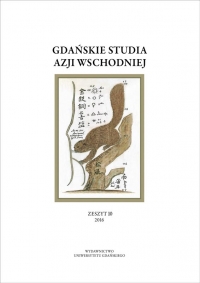Europocentryczne i Dalekowschodnie Spojrzenie na wartość autentyzmu zabytku – Dokument z Nara jako próba pogodzenia odmiennych poglądów
Eurocentric and Far Eastern view on the value of the authenticity of the monument – Nara Document as an attempt to reconcile the different views
Author(s): Katarzyna Schatt-BabińskaSubject(s): International Law, Cultural Anthropology / Ethnology, Sociology of Culture
Published by: Wydawnictwo Uniwersytetu Jagiellońskiego
Keywords: Nara Document; World Heritage Convention; Japan;
Summary/Abstract: The Nara Document of Authenticity was drawn up in 1994 during Conference on Authenticity in Relation to the World Heritage Convention, held at Nara (Japan). The purpose of the final version of the Nara Document was an attempt to reconcile principles thinking in the conservation field. In the first part of the article European understanding of the authenticity of historic buildings, which can be analyzed based on the Charter of Venice was presented. Definitions approved in this charter were not acceptable for East Asian countries (including Japan). Internationalization of the problem of protection of heritage caused that they began to pay attention to the cultural diversity and heritage diversity. In the second part of the article Japanese understanding of authenticity related to traditional Japanese timber join design, Japanese culture, maintenance, and repair and dismantling, preservation politics and traditional attitudes to preservation monuments was characterized. The Nara Document developed concept that “authenticity” should take into consideration the compounds that exist between the material and intangible heritage, drew attention to diversity of cultures (cultural context) and heritage in our world. The content presented in The Nara Document was important for the protection of World Heritage problem of authenticity and possible solutions.
Journal: Gdańskie Studia Azji Wschodniej
- Issue Year: 2016
- Issue No: 10
- Page Range: 28-40
- Page Count: 13
- Language: Polish

